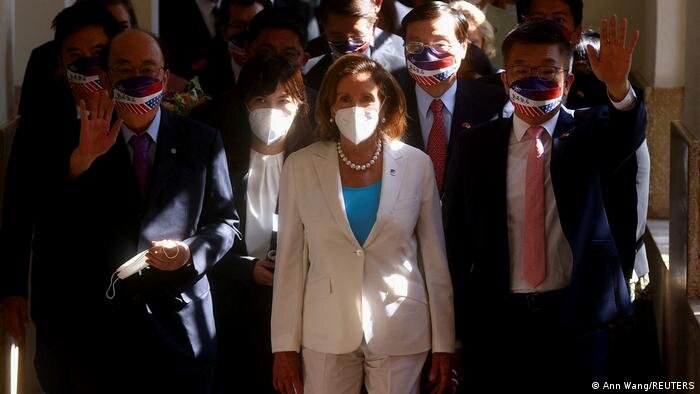Pelosi Taiwan visit reveals U.S. decline

TEHRAN – Despite China’s rare threats and warnings, Nancy Pelosi, the speaker of the United States House of Representatives, visited Taiwan, a move that laid bare the new global alliances that are taking shape in a world where America is no longer the only superpower.
Pelosi paid a short visit to Taiwan on Wednesday and met with Taiwanese President Tsai Ing-wen and members of Taiwan’s parliament. She assured them of the continued U.S. support for their independence. “Make no mistake: America remains unwavering in our commitment to the people of Taiwan– now & for decades to come,” Pelosi said on Twitter shortly before leaving the self-ruled island.
The visit infuriated Beijing because it contravened the principle of one-China, which establishes that Taiwan is part of China, not an independent country. China’s Foreign Minister Wang Yi described the visit as a violation of China’s “sovereignty under the guise of so-called ‘democracy’,” according to Al Jazeera.
He pledged a strong response against Taiwan and the U.S.
“Taiwan’s Tsai Ing-wen and her ilk are clinging to the U.S. and turning their backs on national justice. These behaviors that go against the trend of times will not change the international consensus of one-China and will not change the historic trend that Taiwan will inevitably return to the motherland,” he said.
“Those who play with fire will not come to a good end, and those who offend China will be punished.”
The Taiwan drama also revealed the new alignments taking shape in what some scientists call the transition period in the world order. Iran, Russia, and China denounced the U.S. provocative move in unison. Russia dismissed Pelosi’s visit as “provocative” and Iran denounced it as interference in China’s internal affairs.
Dmitry Peskov, spokesman for the Kremlin, said Pelosi’s trip to Taiwan was a flagrant provocative move, adding that foreign policy goals can’t be achieved this way.
Iranian Foreign Ministry spokesman Nasser Kanaani said Iran supports the one-China principle and that Pelosi’s visit was a violation of China’s territorial integrity.
China appreciated Iran’s support and made remarks in support of Iran regarding the 2015 nuclear deal, formally called the Joint Comprehensive Plan of Action (JCPOA).
Fu Cong, director-general of the Department of Arms Control of the Chinese Foreign Ministry, has said that the United States should remove all kinds of illegal sanctions it had imposed on Iran.
“The U.S. should completely lift its relevant illegal sanctions on Iran and long-arm jurisdiction measures on third parties. On that basis, Iran should return to full compliance with its nuclear commitments,” Fu said.
Similarly, Chinese Foreign Ministry spokesperson Zhao Lijian said on Monday, “The U.S., as the one who started the Iranian nuclear crisis, should fully rectify its erroneous policy of ‘maximum pressure' and respond positively to Iran’s legitimate and reasonable demands, which will help to enable the negotiations to produce results at an early date.”
Russia has voiced similar support. And it seems that Iran, Russia, and China are now on the same page when it comes to global issues.
Pelosi’s Taiwan visit showed the emerging alliance between the three countries is expanding. Through its policies and measures against these three countries, the U.S. has given rise to a new bloc of power.
Reza Zabib, an assistant to Iran’s foreign minister, said Pelosi’s visit was a turning point in U.S.-China relations which will affect international relations.
“Pelosi’s visit to Taiwan is a turning point in relations between China and the U.S. regime and with the waves it creates. It will impact international relations. Until the Second Cold War is established, international relations will go through great shocks. Exploiting the upcoming opportunities requires a great deal of agility and smartness,” Zabib said on Twitter.
Leave a Comment